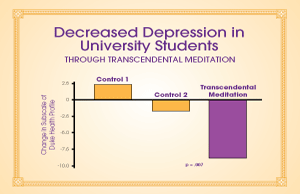Nothing Depressing About That

It turns out I have a job that puts me at risk for depression. Writers, artists and other creatives are on a list of the top ten jobs linked to depression posted on Health.com in 2012. Understandably, caregivers, health-care workers and teachers are in the top ten, but writers? The article cites irregular paychecks, uncertain hours, and isolation as stressful elements of the job. Creative people may also have higher rates of mood disorders, with 9 percent reporting an episode of major depression in the previous year.
From another perspective, just being a woman puts me at risk for depression. Nearly twice as many women suffer from depression than men, research shows, most likely because the female brain is wired in a way that makes women more susceptible to stress. Women are affected by lower levels of stress than men, produce more stress hormones than men and recover from stress less quickly.
Depression can take different forms for women than for men. For instance, depression in the winter months, called Seasonal Affective Disorder (SAD, hits more women than men, as does depression caused by hypothyroidism. Women are also more likely to suffer from “atypical” depression. This means that the normal signs of depression are eating less, sleeping less and losing weight, but in many women, the opposite happens: women who are depressed may sleep more, eat more and gain weight.
Reading this makes me grateful that I started the TM technique early in life, at age 19. Because the TM technique lowers stress, it helps protect the brain from many psychological diseases, including depression. In fact, research shows that the practice of the Transcendental Meditation technique reduces the risk of depression by almost 50 percent over the period of a year! That is significant for women of any age.
Radio host Howard Stern tells the story of his mother’s struggle with severe depression on the David Letterman show. “I was 18 years old. I was in college. My mother was severely depressed—her sister had died and she took it very, very hard. I was worried about her. I get a call one day from this happy, elated woman and I wonder, ‘Who is this?’ and it’s my mother. She tells me she was watching the Johnny Carson Show and she saw Maharishi Mahesh Yogi and she went on and learned Transcendental Meditation. My mother sounded transformed. She said to me, ‘Come on, I want to take you down to the TM Center.’ I did it. And it’s the easiest thing I ever did. I have been doing it since I was 18. I love to do it after the show. I find it very relaxing.”
Like Howard Stern’s mother, many women today find themselves overwhelmed with depression at some point in their lives (79% of antidepressant prescriptions are written for women, and 1 out of 3 women who visit a doctor leave with a prescription for an antidepressant). Yet it is well known that antidepressants create many negative side effects and worse, do not solve the underlying imbalance or stress levels that caused the depression in the first place.
The Transcendental Meditation technique, on the other hand, has many positive side effects—including increased happiness, creativity and productivity, as shown by research. At the same time, it removes the root cause of depression by reducing stress.
If you know someone who is exhibiting signs of depression, encourage her to get help from a medical doctor. And encourage her to start the Transcendental Meditation technique, because it is a natural and enjoyable way to prevent and relieve depression without the negative side effects.
Typical Signs of Depression (from WebMD):
- Difficulty concentrating, remembering details, and making decisions
- Fatigue and decreased energy
- Feelings of guilt, worthlessness, and/or helplessness
- Feelings of hopelessness and/or pessimism
- Insomnia, early-morning wakefulness, or excessive sleeping
- Irritability, restlessness
- Loss of interest in activities or hobbies once pleasurable, including sex
- Overeating or appetite loss
- Persistent aches or pains, headaches, cramps, or digestive problems that do not ease even with treatment
- Persistent sad, anxious, or “empty” feelings
- Thoughts of suicide, suicide attempts
According to Dr. Nancy Leibler, author of Healing Depression the Mind-Body Way, “Severely depressed people often believe they will never feel better. Because the TM technique gives us a feeling of fulfillment and calmness, it also gives hope.””
About the Author
Linda Egenes writes about green and healthy living and is the author of six books, including The Ramayana: A New Retelling of Valmiki’s Ancient Epic—Complete and Comprehensive, co-authored with Kumuda Reddy, M.D.
More Posts by Linda
- Tired and Burned Out? Transcendental Meditation Can Help: An Interview with Dr. Nancy Lonsdorf, MD
- Worried About the Future? Six Ways to Calm Your Anxiety
- What Do You Carry in Your Self-Care Tool Kit?
- Five Strategies for Family Caregivers
- From the Streets to College in Four Months: The Communiversity of South Africa Empowers Underserved Youth in Cape Town





